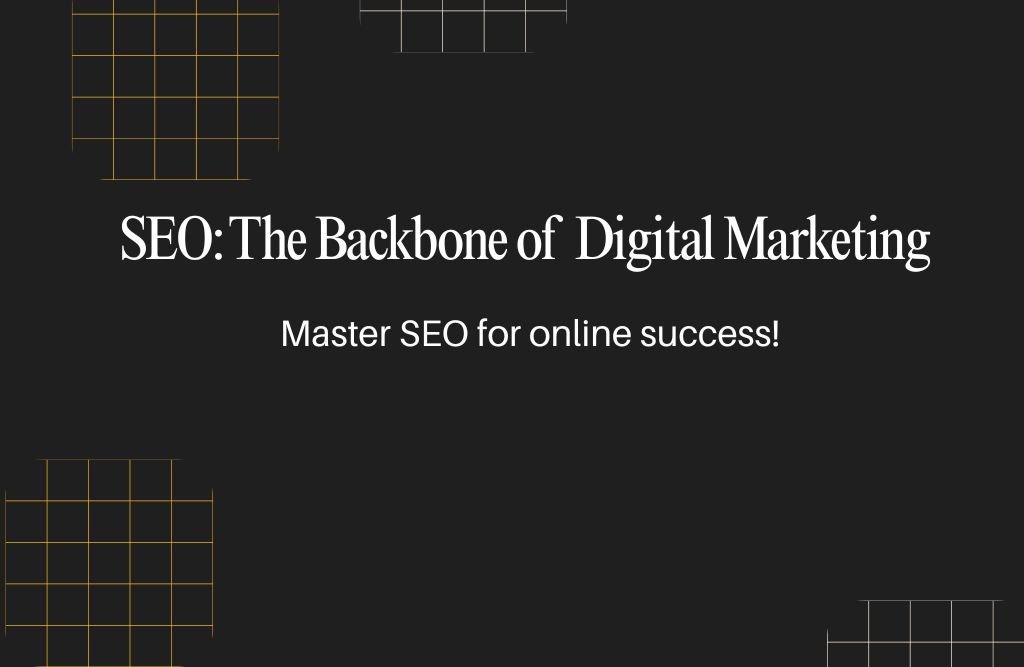
-
Apr 23, 2025
Why SEO is the Backbone of a Digital Marketing Course
In the ever-evolving landscape of digital marketing, various tools and techniques are used to connect businesses with their target audiences. From social media marketing and email campaigns to paid advertising and influencer marketing, each strategy plays a unique role. However, amidst all these methods, Search Engine Optimization (SEO) stands out as the backbone of any digital marketing course—and for good reason.
Foundational to Online Visibility
At its core, SEO is about improving a website's visibility on search engines like Google, Bing, and Yahoo. Over 90% of online experiences begin with a search engine, and most users don’t go beyond the first page of search results. If your business isn’t ranking high for relevant keywords, you're invisible to a massive portion of potential customers.
By teaching SEO in-depth, a digital marketing course ensures students understand how to drive organic traffic, which is both cost-effective and sustainable in the long run. Unlike paid advertising that stops generating results the moment you stop investing money, SEO delivers consistent traffic over time with the right strategies in place.
Organic Traffic is High-Quality Traffic
One of the key advantages of SEO is that it attracts intent-based traffic. When users search for something specific—like “best digital camera under $500” or “affordable physiotherapy in Toronto”—they already have an intention to take action. This makes SEO-generated traffic more likely to convert compared to cold leads generated from random ads or generic content.
A good digital marketing course teaches students how to identify search intent, select relevant keywords, and create content that meets user needs—all essential for bringing in high-quality leads.
SEO Builds Long-Term Brand Authority
SEO is not just about rankings; it’s about building trust and authority. Websites that rank well are generally perceived as more credible and reliable. With proper SEO techniques such as acquiring backlinks, optimizing site speed, improving user experience, and publishing quality content, brands can position themselves as leaders in their industry.
In a digital marketing course, learning SEO equips students with the skills to help businesses become recognizable and respected in their niches, which is key for long-term success.
Interconnects with All Other Digital Channels
SEO doesn’t work in isolation. It complements every other aspect of digital marketing:
- Content Marketing: SEO helps guide the content strategy by targeting the right keywords and topics.
- Social Media: Content shared on social media platforms can improve SEO if it gains traction and backlinks.
- Email Marketing: Traffic generated via SEO can be converted into leads and nurtured through email campaigns.
- Paid Ads: SEO data can be used to make paid campaigns more efficient by identifying high-performing keywords and landing pages.
This interconnection is why SEO is taught as a central element in digital marketing courses—it’s the glue that binds various strategies together.
Improves Technical and Analytical Skills
SEO requires a blend of technical knowledge and analytical thinking. Students must learn how to optimize websites at the code level (meta tags, schema markup, crawlability) and use tools like Google Analytics, Google Search Console, SEMrush, and Ahrefs to analyze performance.
These skills not only make someone a better digital marketer but also help them stand out in the job market. Employers highly value candidates who can audit websites, identify technical issues, and make data-driven recommendations.
Cost-Effective Learning with High ROI
SEO is a cost-efficient channel compared to paid advertising. Once the right strategies are implemented and rankings are achieved, the return on investment can be significantly higher. This is especially valuable for startups and small businesses that can’t afford large ad budgets.
A digital marketing course that emphasizes SEO teaches students how to generate results even with limited financial resources—making them valuable assets in any organization.
Ever-Changing, Yet Timeless
SEO is dynamic. Google updates its algorithm hundreds of times each year. This continuous change keeps SEO professionals on their toes. While tactics may change, the principles of SEO remain consistent—creating user-focused content, optimizing technical performance, and building authority.
A digital marketing course helps students stay current with trends and prepares them for real-world scenarios where they must adapt strategies based on changes in algorithms or competition.
